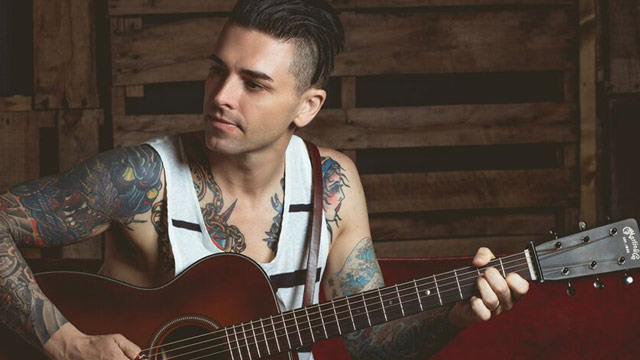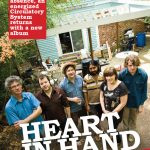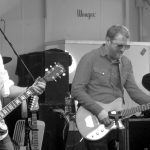Chris Carrabba feels like a dork.
It’s a hot fall Phoenix morning (“yeah, but it’s a dry heat” Carrabba notes), and the lead singer and guiding spirit behind Dashboard Confessional is talking about Rock Band, an interactive video game where anyone can be a rock star.
“I’m not a very good Rock Band guitarist,” Carrabba said with a laugh. “I have a tough time with it. I stop and say, ‘Wait that’s not where the notes go.’ We did this battle of the bands where we were judges and in between live bands they had these Rock Band ringers, and they were excellent. The singers ruled, but the guy who played guitar was so serious. He taped his thumb up in order to work the pic panel.
“It’s an absolute huge culture that I’m only on the periphery of,” he added. “I mean, I can’t believe I actually feel dorky for playing guitar. I’m not cool enough because all I can do is play guitar.”
An actual guitarist? What a loser. But then again, if you’re Carrabba, being uncool is not so bad.
After nine years, seven albums, hundreds of packed shows and millions of albums sold, Carrabba and his bandmates carry certain clout in uncertain times. It’s been more than a year since Dashboard’s last release (The Shade of Poison Tree), and while a new album is expected in early 2009, the band still finds itself a key player in one of autumn’s bigger tours. The Rock Band Live tour (yes, that Rock Band) has Dashboard sharing headlining duties with Panic at the Disco (Plain White T’s and The Cab in tow) on a three-month journey promising camaraderie, adventure, and a sea of people sure to sing every lyric.
“This (tour) was brought to us,” Carrabba said. “We’ve been talking to Panic about touring together for years and we’ve been talking to the Plain White T’s for years. We’d all been trying to figure it out for some time. And I’m so happy it happened. We have activities all day long. It’s like being in a summer camp. It’s the weirdest kind of thing, it’s really fun.”
He sounds surprised, yet refreshed, when he says it. Working in an industry on shaky ground Carrabba is quick to note the stern issues enveloping the music business, relieved he’s already lived through the “terrible record deals and all the teenage mistakes.”
“The industry is in a state of flux like I’ve never seen,” Carrabba said. “I think no one knows which way is up and how to make big enough changes to follow the independence of the music culture. It’s this weird perplexing time.”
But a time he embraces. The Shade of Poison Tree, which has sold more than 200,000 copies, was released on the band’s MySpace page weeks before its official release on Vagrant Records. Eager to spread his music to as many people possible, Carrabba encourages fans to tape concerts and share live recordings of Dashboard shows on the band’s Web site.
It’s an effort to continue the bond he’s developed with his audience since his days as a “just a kid with a guitar” playing for friends in small South Florida clubs.
“There wasn’t a huge music scene there but it was a vibrant one,” Carrabba said of his South Florida days. “We all supported each other. There may have only been 500 kids that would go to shows, but they would go to every show. One thing that surprised me when I started going beyond the boundaries of my ZIP Code was people were remarking how odd it was people would sing every word at our shows. I didn’t think it was odd at all, because that’s how it was in my hometown for every band. I remember being at the first show for New Found Glory and Jordan (Pundik) was singing his lyrics off sheets of paper that were spread all over the stage. We had our Dictaphones out recording, we went home, learned all the words, and the next show we were all singing along. We knew the songs better than Jordan.”
Ten years later little has changed (except for the addition of thousands of fans). The guy who once wrote “I need the chance to be judged/And then long forgotten” is finding the opposite is true: His legions of fans neither judge, nor forget — they simply hang on every word.
“The scene beyond the music industry, where it’s just kids and bands and people making music, is more industrious than ever,” Carrabba said. “It’s an exciting time.”




